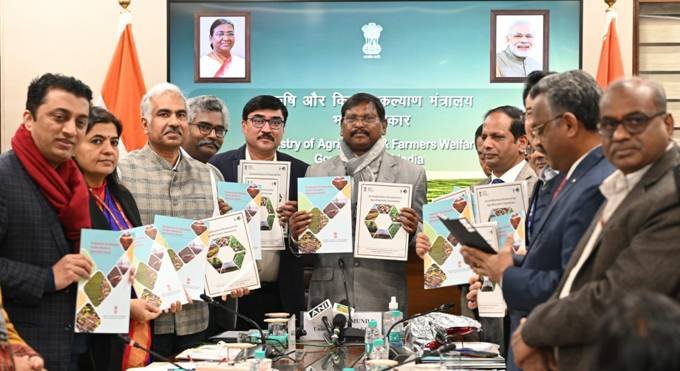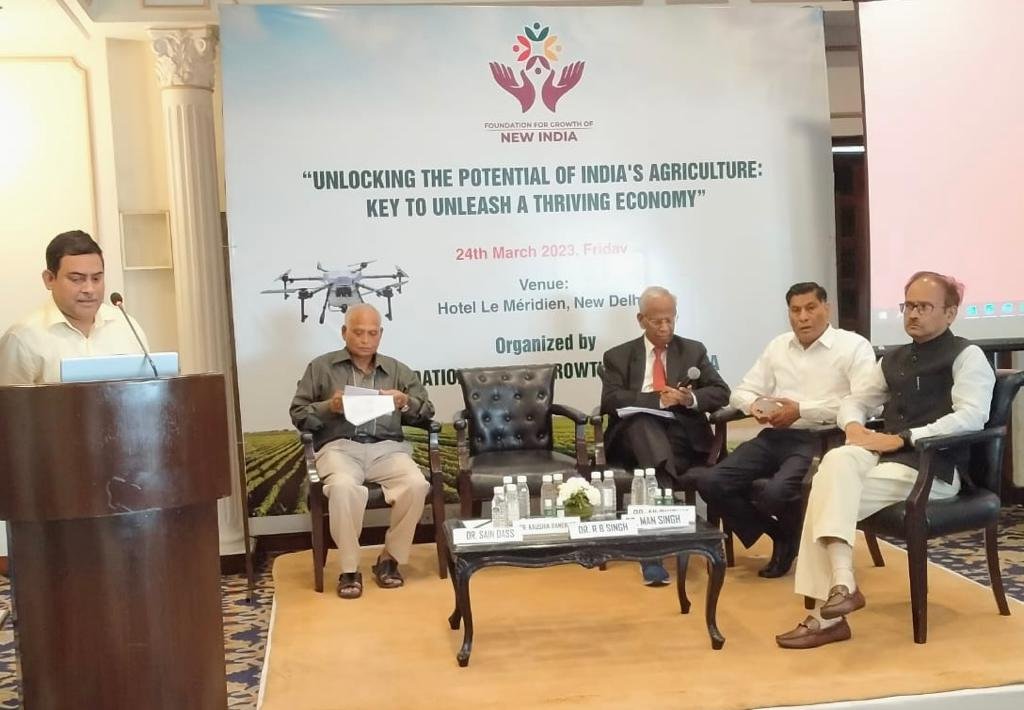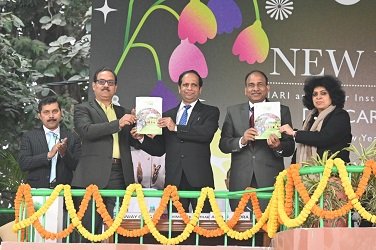Ag Ministry launches framework for voluntary carbon market in agri sector
Introducing farmers to the carbon market will not only benefit them but also accelerate the adoption of environment-friendly agricultural practices
Arjun Munda, Union Minister of Agriculture & Farmers’ Welfare and Tribal Affairs, launched the Framework for Voluntary Carbon Market in the Agriculture Sector and Accreditation Protocol of Agroforestry Nurseries in Delhi. Secretary Manoj Ahuja, Secretary of DARE and Director General of Indian Council of Agricultural Research (ICAR) Dr. Himanshu Pathak, Senior officials of Central and State Ministries and Various Organisations related to agriculture were present on the occasion, while many stakeholders also joined the programme virtually.
In his address, Munda said that the Ministry of Agriculture and Farmers’ Welfare prepared a framework to promote the Voluntary Carbon Market (VCM) in the agricultural sector of the country to encourage small and medium farmers to avail benefits of carbon credit. Introducing farmers to the carbon market will not only benefit them but also accelerate the adoption of environment-friendly agricultural practices. He requested full cooperation from the concerned ministries of the Centre and the States and other concerned organizations to promote the carbon market in the interest of farmers. He said that work should be done in this direction in collaboration with the farmers of the southern areas, in a manner convenient for them and along with the solution; there is a need to focus its benefits on our farmers. This is the first step in which we want to ensure everyone’s participation. Global challenges like global warming are in front of all of us; hence we have to move ahead with caution. He asked ICAR to play an active role in this direction and do good work in the right manner.
Munda said that the Accreditation Protocol of Agroforestry Nurseries will strengthen the institutional arrangements for production and certification of planting material on a large scale to promote agroforestry in the country. He asked all the stakeholders to adopt it so that quality planting material can provide assured returns and the objectives and goals of the National Agroforestry Policy can be achieved. He also urged for proper use of natural resources.
Introducing farmers to the carbon market will





